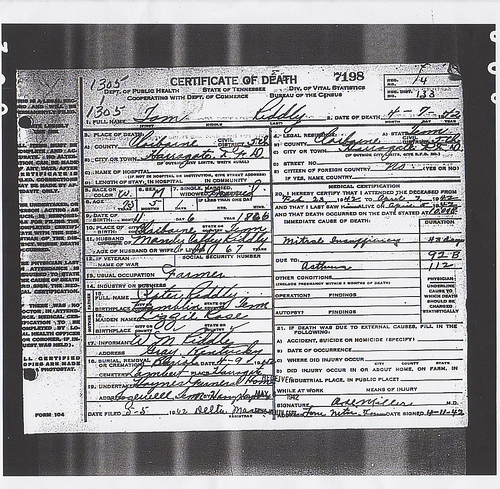How to Obtain a Death Certificate
 A death certificate is the key that closes the door on a wrongful death. In order to start the process of organizing a funeral and disposing of the decedent’s belongings, you need one. A death certificate is concrete proof of what happened to creditors, funeral directors, and all parties you will need to interact with in order to bring the decedent’s affairs to a final conclusion. Naturally, you want to procure this important document as soon as possible (for any of the following uses). The following list details the ways to obtain a death certificate:
A death certificate is the key that closes the door on a wrongful death. In order to start the process of organizing a funeral and disposing of the decedent’s belongings, you need one. A death certificate is concrete proof of what happened to creditors, funeral directors, and all parties you will need to interact with in order to bring the decedent’s affairs to a final conclusion. Naturally, you want to procure this important document as soon as possible (for any of the following uses). The following list details the ways to obtain a death certificate:
Table of Contents
Ways to Obtain a Death Certificate
In some cases, the funeral director will handle the death certificates as part of his duties; however, if one has not been appointed, or if exceptional circumstances have prevented timely access, you may need to request it yourself.
1. In Person
Death records may be accessed by the parents (or legal guardians), grandparents, great-grandparents, adult children, siblings, lawyers, or those with written permission by the aforementioned at state, county, and/or city offices of vital statistics.
2. By Mail
Centers for Disease Control and Prevention keeps a file of state vital records offices where death (and other) certificates may be accessed. Death certificates can be obtained for $16.00 (with extra copies costing $8 per copy) by writing the following address: Office of Vital Records and Statistics Utah Department of Health 288 North 1460 West P.O. Box 141012 Salt Lake City, UT 84114-1012
3. Over the Phone
Orders may also be placed with a credit card over the phone by calling 866-632-2602 between 8 a.m. and 5 p.m. from Monday through Friday.
4. Online
That you are reading this suggests that you have internet access and thus have the option of requesting death certificates online. This can be done by ordering through VitalChek. After you obtain a death certificate there are a myriad of different uses for it, specifically in consideration to your situation. Every situation is different and unique where in you might be required to use this certificate. The following list details how you can use a death certificate:
Uses for Death Certificates
1. Filing Life Insurance Claims
Without proof of death, the decedent’s insurance company will not start paying out death benefits and the survivors may need to begin funeral proceedings.
2. Changing or Canceling Deeds, Titles, and Accounts
When a person dies, the cars, houses, bank accounts, retirement funds, and other possessions under their name must necessarily be transferred to someone else, and whatever subscriptions and services they received should be canceled. To properly dispense with larger items and benefits, a death certificate may be needed.
3. Filing Taxes
It has been said that only two things in life are inevitable, and that those things are death and taxes. In keeping with this adage, even the recently deceased is obligated to file their most recent income tax forms unless they died in military service to their country or in a terrorist attack (in which case it will need to be proven that this is what happened). Depending on the situation, there may also be an estate tax to cover the distribution of assets to survivors.
4. Settling Debts
Any outstanding debts incurred by the deceased may be paid from their estate. Producing a death certificate for debt collectors can help protect the survivors who may otherwise be urged to pay the debt themselves.
5. Accessing Death Benefits
In addition to life insurance coverage, Social Security, workman’s compensation, and other resources for wrongful death coverage may be available with the presentation of a death certificate.
6. Obtaining Burial/Transportation Permits
According to 26-2-17, a burial-transit permit may not be issued without a death certificate. While the cause of death listed on a death certificate may be listed as “pending” in order to allow for a timely funeral, the body won’t be removed to a resting place without proof of death.
7. Estate Business
The executor of a decedent’s estate may not begin estate proceedings until they have a death certificate in hand. Their authority to allocate remaining possessions does not begin until the person they represent can no longer speak on their own behalf.
Image “Tom Ridley Death Certificate” copyright by David Foster.
Free Consultation
Learn your Rights. Get Answers. Free.